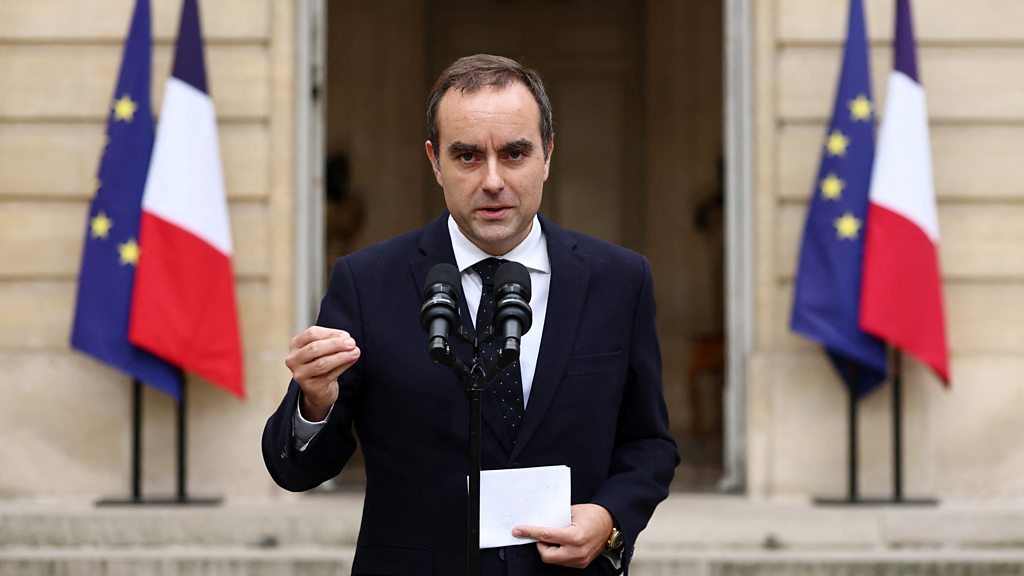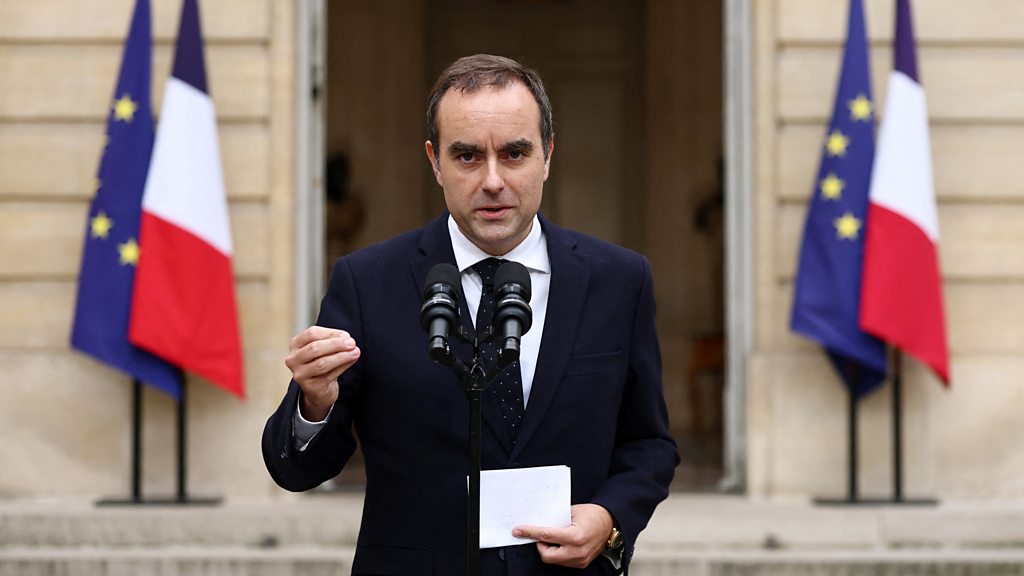
France is experiencing further political turmoil after the latest prime minister, Sébastien Lecornu, resigned after only 26 days in office.
Shortly following his resignation, Lecornu accepted a request from French President Emmanuel Macron to devise a plan for the “stability of the country” by Wednesday evening.
This surprising development concluded a day of political tumult which saw significant declines in market values on the Paris exchange amid worries regarding the political parties’ capacity to address the economic challenges facing the nation.
Lecornu’s unexpected resignation on Monday morning occurred the day after he announced his cabinet, marking him as the third French prime minister to vacate the position since last December.
His ministerial appointments faced severe criticism from various parties in the National Assembly, which threatened to reject them.
Specifically, the appointment of former finance minister Bruno Le Maire as minister of the armed forces appeared to be a contentious issue for numerous political groups.
On Monday afternoon, Le Maire announced his withdrawal from the cabinet in a move to resolve the crisis.
Shortly thereafter, the Elysee Palace revealed that Lecornu had been granted an additional 48 hours to determine if talks with political parties could lead to a “stability plan” for France.
Lecornu was appointed only in September following the collapse of François Bayrou’s government when MPs declined to support his budget.
Bayrou was himself appointed following Michel Barnier’s removal last December.
The nation’s political landscape has been highly volatile since July 2024, when Macron called for immediate parliamentary elections seeking a decisive majority following a significant defeat for his party in the European Parliament election.
Instead, the elections produced a hung parliament split into ideologically opposing factions that are deeply discordant and unwilling to cooperate.
Should Lecornu fail, Macron will be prepared to “take responsibility,” according to sources close to the presidential office as reported by French media.
Several parties are now demanding early elections, with some calling for Macron to step down – though he has consistently stated he will not resign before his term concludes in 2027.
The decision on how to move forward now lies with Macron, who must undoubtedly be pondering how much longer this political farce can persist.
If Lecornu’s effort to achieve “stability” by Wednesday falters, Macron has three options.
He can appoint a new prime minister. He can dissolve the National Assembly once again. Or he can submit his resignation.
The latter is the least probable, while the former would be his natural inclination.
However, whom could he now designate to form a government? Lecornu – deemed the ultimate loyalist to Macron – was regarded as his last hope, yet he has now also faltered.
He could name a Socialist, on the basis that the left deserves a chance at governance – yet a Socialist government would likely collapse quickly as well.
Thus, the most logical choice may be for option two: to conduct new legislative elections.
The outcome would likely be a defeat for the pro-Macron center and a substantial victory for the hard-right led by Marine Le Pen. But when all other options fail, few paths remain.
Lecornu, a previous minister of armed forces, became France’s fifth prime minister within a span of less than two years.
In his brief address outside the Hôtel de Matignon on Monday morning, the prime minister’s residence that he occupied for under a month, Lecornu strongly criticized the “partisan interests” of political groups, which he claimed “are all acting as if they held an absolute majority”.
“I was open to compromise but all parties expected the others to adopt their agendas completely,” he stated.
“It wouldn’t take much for this to work,” he continued, asserting that parties must demonstrate greater humility and “set aside their egos”.
The deep-rooted divisions in French politics have rendered it challenging for any prime minister to secure the backing required to pass any legislation.
Michel Barnier was appointed prime minister last September but was removed within three months through a no-confidence vote.
The government of his successor François Bayrou was also dismissed after nine months when parliament refused to support his austerity plan, which aimed to cut government expenditures by €44bn ($51bn; £38bn).
France’s deficit reached 5.8% of GDP in 2024, while its national debt stands at 114% of GDP. This positions it as the third highest public debt in the eurozone after Greece and Italy, equating to nearly €50,000 per French citizen.

